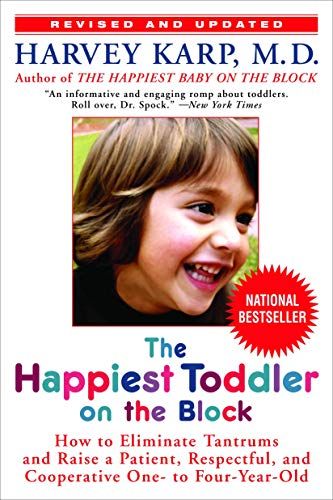Gossip Is the Best Toddler Parenting Hack – Dr. Harvey Karp’s Toddler Parenting Tips – GoodHousekeeping.com
- Dr. Harvey Karp, M.D., F.A.A.P., and author of The Happiest Toddler on the Block says that one way to reinforce good behavior or discourage bad behavior in toddlers is to gossip about it when the child is in earshot.
- He says it works because, like adults, toddlers are more likely to believe what they overhear rather than what they’re told directly.
- Dr. Karp will offer more parenting insights at Good Housekeeping‘s We Are Family Parenting Summit, which takes place in September in New York City.
You know the feeling: You’re walking around the office, or at a party, and you hear the hushed tones of someone who is clearly telling a secret, possibly with their hand cupped over their mouth to deter nearby eavesdroppers. What do you do? Your natural inclination is to try to key into the conversation and listen.
It turns out, your toddler does the same thing. More importantly, your tot is even more inclined to believe you if he hears you talking to someone else rather than saying something directly to him. (Again, something else you might be guilty of: If a coworker compliments your outfit, you might assume she’s just being nice, but if you overhear her telling someone else she likes your outfit, you’d assume it’s true.)
The good news: You can use that tendency to your advantage, says Dr. Harvey Karp, M.D., F.A.A.P., founder of The Happiest Baby and author of The Happiest Toddler on the Block. Next time you want to reinforce some good behavior — or even discourage bad behavior — Dr. Karp says the thing to do is cup your hand around your mouth and gossip about it when your child is in earshot. “Did you know that Liam ate all his peas today?” you say in a hushed, excited tone. “I’m so happy he did that!” If you repeat this “gossip” a few different times to a few different people, your toddler will get the message: It’s good to eat your peas.
“The reason it works is that we start to learn very early that people say things to us for different reasons, and that people have ulterior motives,” Dr. Karp says. “We also learn that when things are spoken in secret, it’s an indication that something is of high importance.” He estimates that when you remark about your child’s behavior by gossiping, kids are up to five times more likely to absorb the message than if you’d given direct praise or criticism.
Dr. Karp will speak more as a featured panelist at Good Housekeeping‘s We Are Family Parenting Summit, a daylong event with keynotes, panel discussions, Q&A sessions, and a product expo meant to connect parents to brands they love.
And toddlers pick up on this type of thing earlier than you’d imagine. “The most common age for this is really around 2 to 4,” he says, “but a smart 1-year-old can pick up on that kind of thing. They’re learning all sorts of gestures at 1 year: pointing, smiles, frowns, that kind of thing. Younger than 1 is a little too early, and after 5, you have to be very sneaky when you do it, otherwise they start to feel manipulated.”
The other thing is that it doesn’t matter who you tell, especially to the younger kids. “You can whisper it to a doll or a bird outside, you can pick up a telephone and pretend to call Grandma,” he says. “They don’t know the difference.” But the important thing is not to give the game away: Don’t look at your child when you do it, or wink at them, or give off the message in any way that you know they’re listening. That’s how they’ll know they’re being played.
You should make sure you whisper about the good as well as the bad, he says, because one mistake that parents of toddlers make is only focus on on how to curb tantrums. “You can eliminate about 75% of tantrums, that’s not hard to do,” he says. “But what’s more important than that is building a child’s sense of self-confidence, patience, cooperation, their executive functioning. That’s something that doesn’t happen willy-nilly, or by accident. You have to work at it.”
For can’t-miss news, expert beauty advice, genius home solutions, delicious recipes, and lots more, sign up for the Good Housekeeping newsletter.
Subscribe Now
Parenting & Relationships Editor
Marisa is GoodHousekeeping.com’s resident parenting expert; she previously wrote about motherhood for Parents and Working Mother.
Let’s block ads! (Why?)


